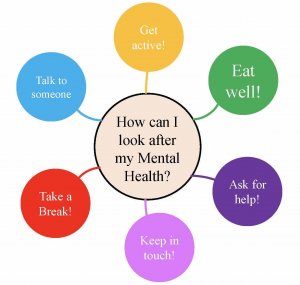- About Us
- The Schools
-
Admissions
- Armed Forces Covenant
- Acceptance Form
- Admissions Process and Key Dates
- College Transport
- Ellesmere College 'Virtual Tours'
- Fees
- Insurances and Fees Refund Scheme
- International Students
- Methods of Payment
- New Parent Information
- Registration Form
- Scholarships & Bursaries
- Start of Term Arrangements
- Uniform
- Pupil Area
-
Parents' Area
- Catering
- College Policy Documents
- College Transport
- Ellesmere Newsletter
- External Examinations
- Fees
- Holiday Camps at Ellesmere
- In Touch
- Inspections
- Insurances and Fees Refund Scheme
- Methods of Payment
- New Parent Information
- Open Days & Events
- Parent Portal
- Parents' Society
- Scholarships & Bursaries
- Terms & Conditions
- Uniform
- Busnet
- Ellesmere Community

 Ellesmere College Student Views - Alice Yang (China)
Ellesmere College Student Views - Alice Yang (China)

 Ellesmere College Student View - Lewis Hall
Ellesmere College Student View - Lewis Hall

 Ellesmere College Football Academy
Ellesmere College Football Academy

 Ellesmere College Rugby Academy
Ellesmere College Rugby Academy

 Explore the Ellesmere Difference UK
Explore the Ellesmere Difference UK

 Ellesmere College - Aerial View
Ellesmere College - Aerial View

 Edoardo and Tommaso
Edoardo and Tommaso

 Tapaswini & Vanessa
Tapaswini & Vanessa

 Student Views - Vansh Bajaj
Student Views - Vansh Bajaj

 Speech Day 2015
Speech Day 2015

 Student Views - Richard Lay
Student Views - Richard Lay

 Student Views - Cassie Champrasit
Student Views - Cassie Champrasit

 Chapel Choir
Chapel Choir

 Return To The Forbidden Planet Trailer
Return To The Forbidden Planet Trailer

 Talbot House 'I'm A Believer'
Talbot House 'I'm A Believer'

 Students View - Tilly Walker
Students View - Tilly Walker

 Students View - Peter Von Hoven
Students View - Peter Von Hoven

 Students View - Ben Williams
Students View - Ben Williams

 Student Views - Alice Tow
Student Views - Alice Tow

 Ellesmere College Presents Romeo & Juliet
Ellesmere College Presents Romeo & Juliet

 Lower School
Lower School
Information & Guidance
Looking After Your Mental Health
It's really important to take care of yourself and get the most from life – and that means looking after your mental as well as your physical health! Sometimes life can be a bit overwhelming or confusing – from exams to living with Covid, self-image to bullying – we all need help from time to time. Sometimes, making simple changes to how you live doesn't need to cost a fortune or take up loads of time but it can really help – so we have listed Six Key Ways you can start to help yourself and those around you!
Unfortunately, stigma can be attached to mental health problems. This means that people feel uncomfortable about them and don't talk about them much. Many people don't even feel comfortable talking about their feelings. But it's healthy to know and say how you're feeling - so why not see if any of our practical tips can help you or search the A-Z of Mental Health below!
6 Key Ways to Look after your Mental Health

1. Talking!
- Talking about your feelings can help you stay in good mental health and deal with times when you feel troubled.
- Talking about your feelings isn't a sign of weakness; it's part of taking charge of your wellbeing and doing what you can to stay health
- Talking can be a way to cope with a problem you've been carrying around in your head for a while. Feeling listened to can help you feel more supported. And it works both ways. If you open up, it might encourage others to do the same.
- Talk to one of our student MHESS counsellors, your tutor, or email Alex Murphy: alex.murphy@ellesmere.com
2. Get Active!
- Regular exercise can boost your self-esteem and can help you concentrate, sleep, and look and feel better.
- Exercise keeps the brain and your other vital organs healthy, and is also a significant benefit towards improving your mental health.
- A simple 30 minutes of walking outdoors has been proven to boost endorphins which has a "happy" effect on the way that we feel.
- Any exercise can be good for us. Exercise doesn't have to mean going to the gym, even gardening can be very effective - so try and fit some into your day.

3. Eat Well!
- What we eat may affect how we feel – for example, caffeine and sugar can have an immediate effect. But food can also have a long-lasting effect on your mental health.
- Your brain needs a mix of nutrients in order to stay healthy and function well, just like the other organs in your body. A diet that's good for your physical health is also good for your mental health.
- If we constantly eat rubbish, we'll feel "rubbish!"
- Make sure we get a good balance of green vegetables, protein, nuts and fish to give our brains a good source of nourishment.
- Don't forget to hydrate!!
4. Keep in Touch!
- Strong family ties and supportive friends can help you deal with the stresses of life.
- Friends and family can make you feel included and cared for. They can offer different views from whatever's going on inside your own head. They can help keep you active, keep you grounded and can help you solve practical problems.
- There's nothing better than catching up with someone face to face, but that's not always possible. You can also give them a call, drop them a note, or chat to them online instead. Keep the lines of communication open: it's good for you!
5. Ask for Help!
- None of us are superhuman. We all sometimes get tired or overwhelmed by how we feel or when things don't go to plan.
- Asking for help can often be a sign of strength, not weakness."
- If things are getting too much for you and you feel you can't cope, ask for help. Your family or friends may be able to offer practical help or a listening ear. Local services are there to help you. For example, you could:
- Visit www.self-help.org.uk for more information about groups across the UK
- Visit our Further Help & Support page for contact details of mental health charities and organisations.
6. Take a Break!
- A change of scene or a change of pace is good for your mental health. It could be a five-minute pause from cleaning your kitchen, a half-hour lunch break at work, or a weekend exploring somewhere new.
- Give yourself some 'me time'. Taking a break may mean being very active. It may mean not doing very much at all. Take a deep breath… and relax. Try yoga or meditation, or just putting your feet up.
- Listen to your body. If you're really tired, give yourself time to sleep. Without good sleep, our mental health suffers and our concentration goes downhill. Sometimes the world can wait.


 House Singing Competition
House Singing Competition  Sport at Ellesmere
Sport at Ellesmere  Tennis Academy
Tennis Academy  Life at Ellesmere
Life at Ellesmere  Boarding Life
Boarding Life  Sixth Form
Sixth Form  The Arts
The Arts  CCF/DofE Adventure Training
CCF/DofE Adventure Training  Why Louis Chaudron joined Ellesmere College
Why Louis Chaudron joined Ellesmere College  International Admissions
International Admissions